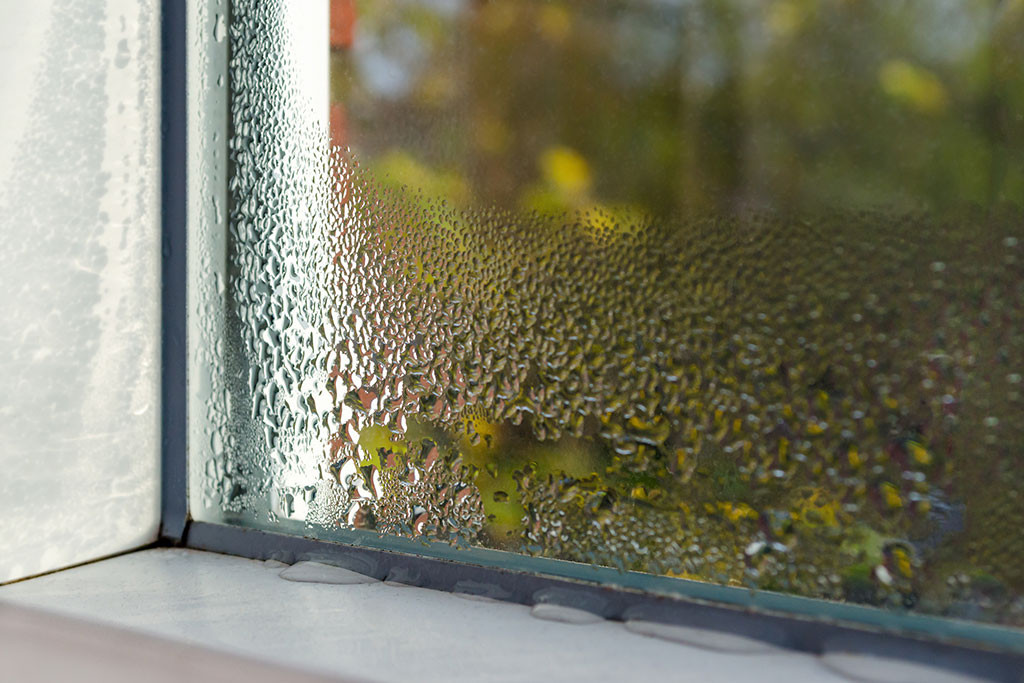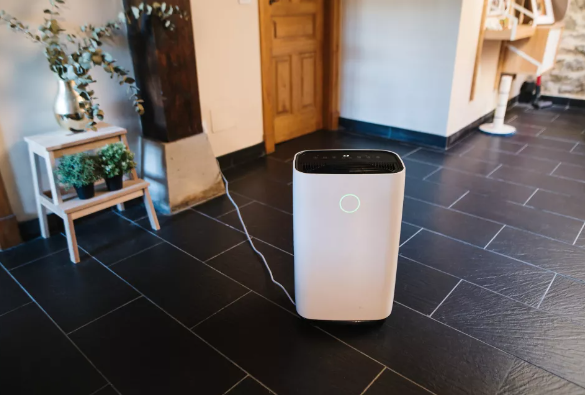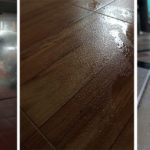Humidity is a term used to describe the amount of water vapor in the air. The phenomenon of muggy weather occurs when the humidity in the air exceeds 90%, indicating a high level of moisture in the atmosphere.
Water vapor condenses and accumulates on the surface of objects, causing a damp and wet environment. This type of weather is characteristic of the northern region of Vietnam during the transitional period from late winter to early spring.

Signs of humidity in the house
When humidity is present, your house becomes damp and sweaty, making the floors slippery. This can make it difficult to move around, especially for the elderly and young children.
Laundry takes a long time to dry, leading to unpleasant odors and rapid mold growth.
Fabric items such as blankets, pillows, and bed sheets feel damp and never seem to dry completely. This creates conditions for harmful bacteria to grow, affecting health and increasing gastrointestinal and skin diseases.
Over time, this condition becomes uncomfortable and significantly affects the quality of life for families.
Tips to reduce humidity, simple and effective methods to combat mugginess

Set your air conditioner to dry mode
An air conditioner naturally reduces humidity in the house by removing warm air and supplying cool air. Make sure to clean your air conditioner regularly to maximize airflow.
Use a ventilation fan
When cooking, taking a shower, or engaging in any activities that generate heat in your house, remember to use a ventilation fan to increase airflow and reduce humidity.
Limit opening doors
Many people tend to open doors and windows to let in fresh air and dry the floors quickly. However, this is a misconception. The gusts of wind carry high humidity into the house, exacerbating the dampness. It is best to limit opening doors to keep the house dry.

Remove carpets
Carpets are known to retain a lot of moisture, so if possible, temporarily remove carpets from your house during humid weather.
Clean the house with dry cloths
The best method at this time is to use a dry and clean cloth to wipe away water on the floor.
Use moisture-absorbing materials
You can use a dehumidifier placed in the house to reduce humidity and promote air circulation. If you don’t have a dehumidifier, you can place a bowl of unburned charcoal, lime or silica gel, dry towels, or baking soda in corners of your house.

Avoid drying clothes indoors
This unintentionally adds moisture to the house, preventing it from drying out properly. It is best to hang clothes outside, and if they take too long to dry, you can use a dryer.
Move plants outside
If you have many indoor plants, consider moving them outside during this weather. The plants contribute to the humidity in the house.
With these small tips, I hope they help keep your family’s living space dry and clean even on muggy days, according to Forbes.

Chấm điểm 8 chất liệu chăn, ga phổ biến

Mẹo làm ấm không gian với đèn chiếu sáng

Xu hướng thảm nội thất năm 2023
How to Grill Chicken for Optimal Juiciness and Tenderness
Grilling up chicken that is tender, juicy, and bursting with flavor is easy – and we’re going to show you how! With just a few tips and tricks, you can make mouthwatering grilled chicken every single time. Learn which ingredients to use, which spices to marinate with, and the best cooking techniques to put to use. Get ready to wow your family and friends with delicious grilled chicken!





































